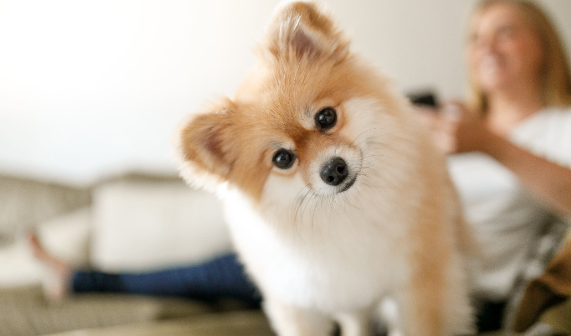Grief-stricken after death of your pet? It’s okay to mourn

Recently, Carol Waithiegeni woke up to devastating reality. Her favourite pet, a kitten, had been killed mysteriously and his head dumped in her compound.
Gizmo, as they used to call him, was the smallest of her other kittens. He was born weak and of a small frame. Carol took a lot of time and attention to nurture him, for him to keep up with the other kittens. Eventually, Gizmo got strong, but the size remained significantly small.
“As a family, we had established a strong bond with him. His death affected all of us. Losing him was like losing a family member. We mourned him as we have always mourned all our pets,” she shares.
However, when she expressed her feelings, some of her friends acknowledged her loss, others quickly followed it up with questions about whether she would get another kitten. This was hurting.
Just an animal?
Carol is not the only pet owner who has gone through this. Unlike human death, there are no rituals to memorialise a pet, nor is the grief legitimised by society, thus leaving owners to struggle in what is referred to as disenfranchised grief. Disenfranchised grief is when your grieving doesn’t fit in with your larger society’s attitude about dealing with death and loss.
Pet owners may be embarrassed and even ashamed about the severity of the heartbreak they feel and, consequently, hesitate to disclose their feelings. That additional shame complicates the process of recovery by making it more lengthy and complex than it should be.
“Many people assume a pet is just an animal and it should not be mourned. What they don’t realise is that the owner had already established a bond with that animal. They had an unspoken language. Thus, making it not easy to just let it go. Normalising the grief process for owners can be, especially helpful in their healing journey,” Carol says.
According to Teli Hapi, a dog breeder, pet grieving is still taboo in Kenya because pets were never seen as members of the family, but as “staff’ who had a specific job to do. Dogs were raised to keep away thieves at night, to protect farm animals from other predators, and to help the pastoralists to herd their cattle. Cats, on the other hand, were raised to keep away rodents – that was their full job description.
“Culturally, animals were seen as ‘tools’ and you were not allowed to get too attached to a tool that can easily be replaced. With the majority of people still thinking this way, pet grieving will continue to be a taboo in our society,” says Hapi.
He says this should change. Times have changed and many people consider their pets as active members of their family and treat them as such. Some don’t have children of their own, and instead opt to fill this void with a pet. Because of this change, he says that it is always good to acknowledge the pain one is going through after losing a pet and validate their feelings rather than looking away.
Many of the societal mechanisms of social and community support are absent when a pet dies. No employee would ask time off to grieve a beloved cat or dog because they fear doing so would paint them as overly sentimental, lacking in maturity or emotionally weak. Hence some may just opt to continue working or taking annual leave
“Animals are accepted as part of our families, yet there is still an overwhelming perception that mourning their loss is not truly valid. People should know that when a pet owner loses a pet, he faces two types of loss – that is, primary and secondary loss. Primary loss is the loss of the animal itself while secondary loss is the loss that occurs because of losing that animal. These can be the loss of emotional support, loss of a companion, loss of any dreams for the future, loss of confidence, and even for some, a loss of identity,” reveals Hapi.
It hurts deeply
Another reason pet grieving should be normalised is that grieving allows one to honour the pet and, therefore one is able to heal and go through the loss. “Losing a pet to many pet owners hurts, just like losing a family member. This is because of the attachment between a pet and the owner. They are used to them being around their homes and their lives. With such an attachment, one is usually lost on what to do when the pet/pets are not present,” he adds.
And what are some of the ways pet owners mourn their pets? He says that though grieving is a personal process and how individuals choose to grieve varies from one pet owner to another. Some common ways include holding a memorial service, looking for a similar pet to help one move after the loss, crying sorrowfully after the loss, taking time off work to grieve and sitting silently and grieve the loss.
“After losing my dog, I grieved for one year. During that duration, I didn’t want to be around or own any pets. I lost interest in dogs completely. However, things changed after the healing, and today, I am a proud dog owner and a pet enthusiast,” he added.
His advice to pet owners is that they should take time to mourn as hiding these emotions can lead to clinical depression, eating disorders, and even sleep disorders.
And why should someone who is grieving the loss of their pet seek support? Hapi says lack of support during the grieving process can prolong emotional pain. Apart from that, seeking support from either someone you trust or even a professional that specialises in grief helps with the grieving process.












